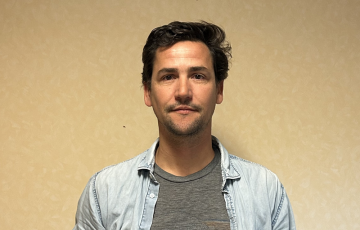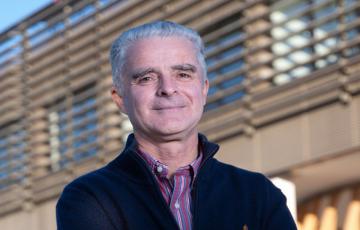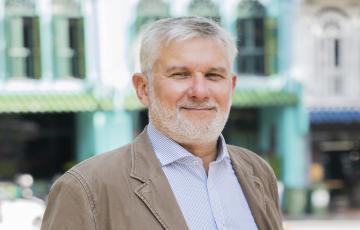Provence at the forefront of the energy transition

Pioneering companies in Aix-Marseille-Provence
Reducing the environmental impact of air, water and road travel. The need to upgrade the requisite technologies was identified 15 years ago in the Provence region. The innovations that began with that realization continue today with investments in the future for the benefit of future generations. Provence-based pioneers such as CMA CGM, La Méridionale, Airbus, Safran and Air Liquide are each illustrating in their respective sectors the deep commitment of the major groups in the Aix-Marseille-Provence area to find solutions to preserve our planet.
 In January 2017, the Marseille shipping company La Méridionale achieved a first in France: connecting a passenger-cargo ship to ground power while at berth in the Port of Marseille. Thanks to this innovation, the ship was able to cut off is engines and generators and power all its equipment with shore-side electricity, eliminating fumes and noise for residents and improving working conditions for the crew.
In January 2017, the Marseille shipping company La Méridionale achieved a first in France: connecting a passenger-cargo ship to ground power while at berth in the Port of Marseille. Thanks to this innovation, the ship was able to cut off is engines and generators and power all its equipment with shore-side electricity, eliminating fumes and noise for residents and improving working conditions for the crew.
This success was quickly followed by other innovations. For example, in late 2018 the group demonstrated in Corsica its ability to supply electricity to a ship at berth using a mobile generator that runs on liquefied natural gas (LNG). In 2019, it invested in installing a particle filter on the funnel of its ship Le Piana to virtually eliminate (99% reduction) its fine particle emissions into the atmosphere.
Since September 2019, at the initiative of the Provence-Alpes-Côte d’Azur Region, the ports and shipping lines involved in this virtuous effort to green France's fleet have received support from local governments. The "Zero-Emission Ports" plan with €30 million in funding was launched to help expand shore-side electricity to wharves and to equip vessels.
LNG propulsion and carbon neutrality for CMA-CGM
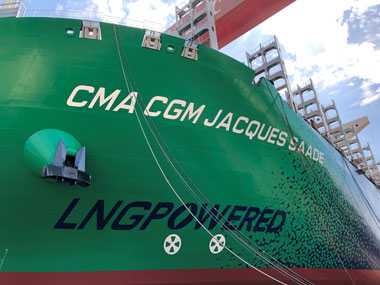
As passenger ships in Marseille were embarking on their energy transition, the world's fourth-largest container shipping line, CMA CGM, made history of its own in 2017 with its order of nine 23,000-TEU container ships powered by LNG ‒ a first. The inaugural container ship, christened Jacques Saadé in honor of the group's founder, was launched in September 2019. Under the terms of a 10-year contract, Total will provide 170,000 metric tons of LNG per year and the tanker refueling solution at Fos.
The shipping company plans to experiment, test and develop all types of energy solutions. In February 2020, it began participating in the world tour of the Energy Observer hydrogen boat. CMA CGM's goal is to achieve carbon neutrality by 2050.
Hydrogen for road transport
In 2018, when the French government introduced its plan to deploy hydrogen solutions, the hydrogen sector was already organizing locally in Provence.
Industrial partners at the PIICTO platform in Fos-sur-Mer are investing in innovative projects linked to hydrogen. These include the HyaMMED ("Hydrogen in Aix-Marseille for Eco-Friendly, Sustainable Mobility") project which seeks to reclaim carbon-free hydrogen.
Sponsored by Air Liquide alongside major retail groups (Carrefour, Coca-Cola European Partners and Monoprix) and the Cap Energie competitiveness cluster and with support from ADEME and regional and European authorities, the project has now entered the construction phase to build France's first high-pressure hydrogen refueling station for long-haul trucks at Fos-sur-Mer. When the station begins operating in 2022, it will enable an annual reduction of 1,500 tons of CO2 emissions in the heavy-duty vehicle segment.
The energy transition is also accelerating in the skies
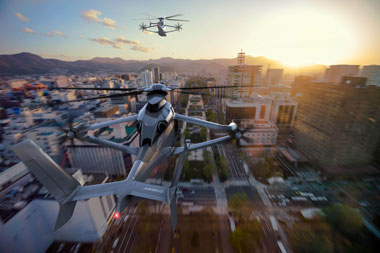 Provence is playing a role in this dramatic change through the presence of Airbus Helicopters, which is committed to the European Blue Sky program to develop cleaner, faster (400 km/h) air transport with the RACER. This technological demonstrator unveiled at the 2017 Le Bourget air show is the first helicopter from Airbus to feature hybrid technology developed by Safran Electrical & Power.
Provence is playing a role in this dramatic change through the presence of Airbus Helicopters, which is committed to the European Blue Sky program to develop cleaner, faster (400 km/h) air transport with the RACER. This technological demonstrator unveiled at the 2017 Le Bourget air show is the first helicopter from Airbus to feature hybrid technology developed by Safran Electrical & Power.
Reducing CO2 emissions is an important R&D focus for Airbus Helicopters. Several possibilities are being studied to design the clean helicopter of the future.
These objectives were reaffirmed by the government in its aeronautics assistance plan which aims in particular to pave the way for the heir to the Écureuil. The ultra-efficient aircraft (40% less energy consumption) already supports hybrid electrical operation and will run on hydrogen in its final version (demonstrator expected in 2029).


 +33 4 96 11 60 00
+33 4 96 11 60 00





